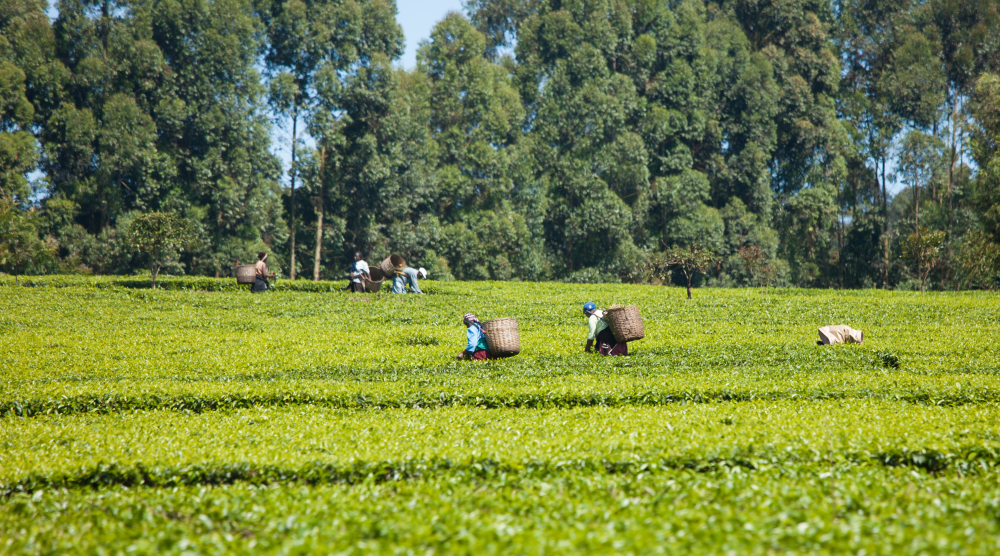
Growing demand for food, fuel and fibre has expanded global commodity trade and large-scale land acquisitions in the Global South. This has resulted in significant land use changes, creating biodiversity losses and social impacts, leading to a global biodiversity emergency inextricably linked with globalising agrofood systems. A team from University of Kabianga (UoK), Kenya led by conservation scientist Dr Joseph Hitimana, is collaborating with the Natural Resources Institute (NRI) and Wageningen University on a four-year action research project to tackle the impacts of global agro-food supply chains.
The UoK team joined by NRI PhD student Niall Readfern and Professor Valerie Nelson, who leads the project at NRI, spent the first two weeks of February conducting collaborative fieldwork in local communities in Kericho County, western Kenya. Specifically, the team explored rural imaginaries – collective understandings of identities, relations to others and place – and used participatory photography to engage with the first of three local communities in the Mau Forest area. This area lies between the vast tea plantations owned by large multinational corporations and the biodiversity-rich Mau Forest reserve which is affected by deforestation. The fieldwork seeks to explore diverse perspectives and shared imaginaries on changing relations involving humans, plants, animals, infrastructures, technologies and phenomena, such as rivers or the wind. It further aims to establish how these livelihoods and lifeways (everyday practices shaped by socio-cultural factors) are affected by historical processes and contemporary commodity production.
Participatory photography is one of several visual research methods which involve providing people with cameras to record their realities and perspectives. The approach, as employed by the NRI and UoK team in this imaginaries research, also includes the use of symbols, combined with other methods such as elders' storytelling, focus group discussions and collage-building. These methods are used to co-explore different community and social group imaginaries so that the latter can be brought into learning cycles with different landscape actors to explore and stimulate transformative change possibilities.
This work is part of the EU-funded Transformative Change for Biodiversity and Equity (TCforBE) project. Combining expertise from nine partners from three EU member states and four other countries, TCforBE is using transdisciplinary research approaches to generate new knowledge and capacities. The project seeks to understand how the increasingly distant and complex linkages between places of production and consumption create invisible impacts, and the implications of these for transformative change.
In Kenya, the UoK team are continuing this research in other communities across the landscape. The outcomes from this initial phase set the stage for further application of the participatory approach in Cameroon and Colombia, which is now ongoing. It will be followed by social learning processes later in the year in each country and ongoing work in the EU, engaging decision-makers, consumers, citizens and artists to advance justice-oriented change. As the project progresses, the team aims to assess multiple deep leverage points for shifts in values and ways of being to inform decision-makers and social movements.
For more information about TCforBE contact Dr Verina Ingram or Professor Valerie Nelson.

